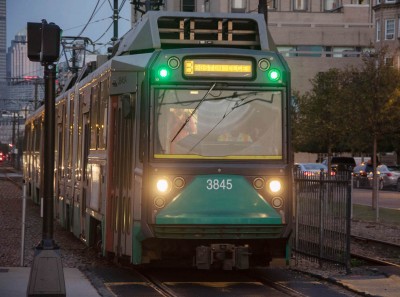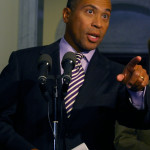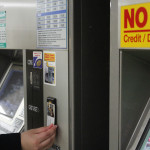
The Massachusetts Bay Transportation Authority is rolling out changes to operations and management implemented during the summer while looking to improve service for Boston-area commuters.
During the summer, Massachusetts Gov. Charlie Baker created the Fiscal and Management Control Board to oversee the T’s daily operations and released a winter resiliency plan to ensure the MBTA as a whole runs better regardless of weather conditions.
Mark Steffen, spokesman for Baker, said the new winter plan will bring the MBTA more specialized control.
“There are many things getting in the way that prevented undivided attention being brought to the system,” Steffen said. “The second piece is that the governor’s winter fund is something that we commit to fully implement before next winter. That’s really the one that we’re putting the most focus on.”
Following service problems the MBTA faced this past winter, Baker created a special panel to address the concerns about service. In April, the panel released a report detailing specific problems and suggestions for improving the transportation system.
“The catastrophic winter breakdowns were symptomatic of structural problems that require fundamental change in virtually all aspects of the MBTA,” the report said.
The cost of such improvements would tack onto an existing $2 billion plan that seeks to expand the Green Line into Somerville, according to an Aug. 24 report. Nearly five miles of new track, 24 new Green Line trolleys, a relocated Lechmere Station as well six new stations along the proposed Somerville stretch are included in construction plans.
MBTA spokesman Joe Pesaturo said the T will continue to work with Baker’s suggestions until customers are provided with improved service.
“Working closely with Secretary of [the Massachusetts Department of] Transportation Stephanie Pollack, the MBTA will continue to implement Governor Charlie Baker’s plans for providing transit users with the level of service they expect and deserve,” Pesaturo wrote in an email.
Other upgrades in progress include snow fences along the outside track of the Red Line, switch heaters to save power and more energy generators, Steffen said. Because MBTA services can run through as many as 40 generators a year, there will be increased capacity of emergency generators for cars, he said.
Several residents said they look forward to the work the leadership will do to improve service.
Brianna Roskie, 32, of Back Bay, said she felt frustrated during the winter, so seeing any changes would be an improvement.
“Honestly, the T let me down a lot this winter and so I have my doubts about it improving anytime soon, but management changes are good,” she said. “I just feel like I haven’t seen much improvement yet though so it’s going to take a long time before it’s noticeably better.”
John Bray, 61, of Allston, said he thought the T is doing well enough, considering the circumstances it is under.
“I think the T put up with a lot of press after this winter and I think they’re doing the best that they can,” Bray said. “The changes they’re making are so that our transportation system will improve. I do think there will be a period of adjustment but with the changes, I’m sure this winter it’ll be better.”
Stephanie Hall, 28, of Allston, said she wants to see how the management handles the financial concerns that tend to plague the MBTA.
“The T obviously needs to be making changes, I mean it kind of doesn’t work the way it should,” Hall said. “But I think we won’t really know whether or not it’s going to improve until we see how the new management does. I think the biggest thing is going to be seeing how the new management handles money.”














